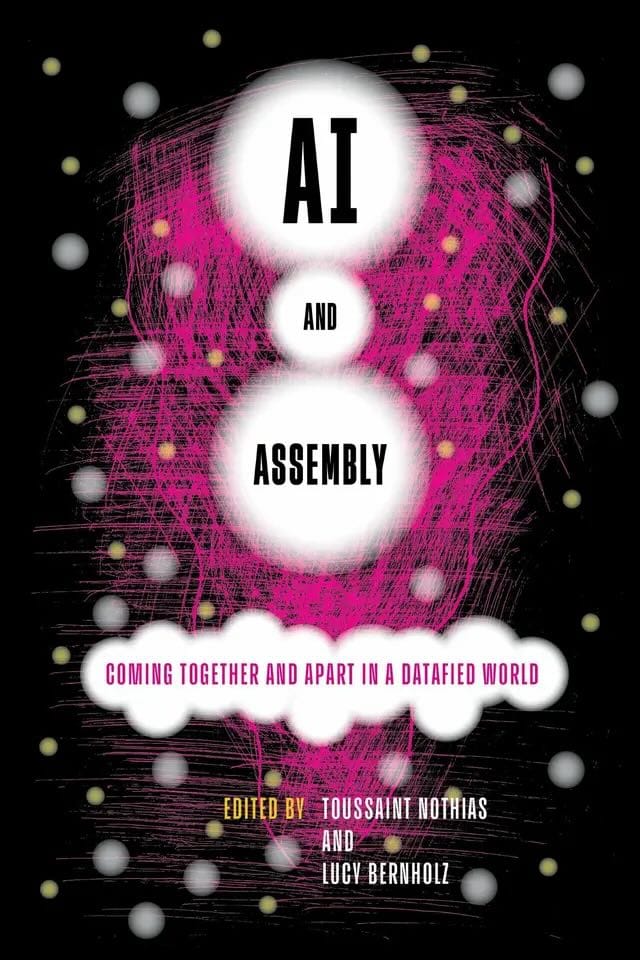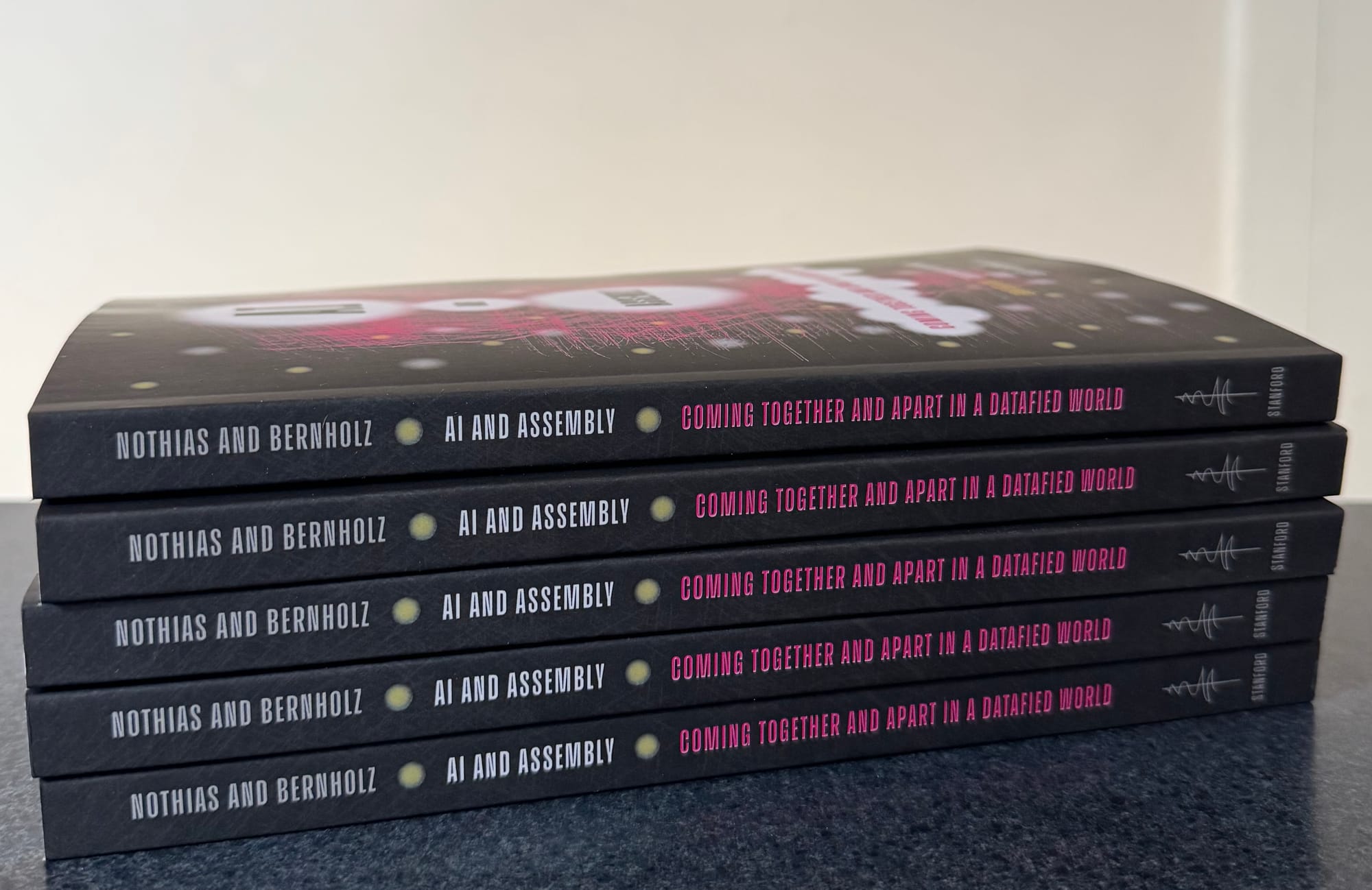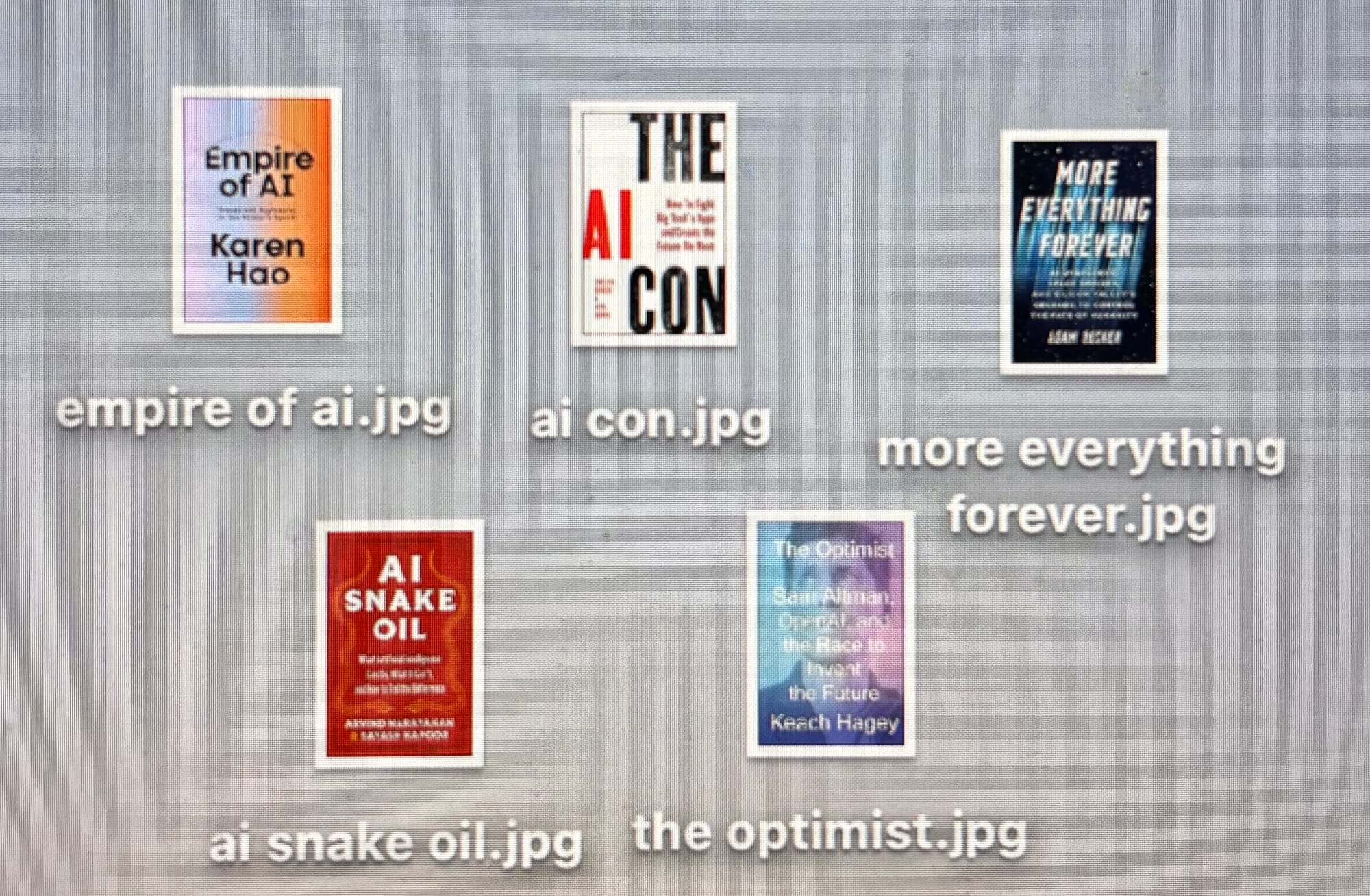Pub date

I've been disabled by long covid and away from work for so long I've almost forgotten what it's like to have a new book come out. But it's true. It's happening.
Jointly edited with Dr. Toussaint Nothias, former Associate Director of the Digital Civil Society Lab and now on faculty at NYU, AI and Assembly will be here in a month. I just received a stack of them from the publisher - always a fun box to open.

This was a major research project for the Lab. We had several undergrads and grad students work on the many different concepts that such a topic touches upon. "Assembly" is a software term, so it can be hard to differentiate article and book titles. We were interested in the rights-based definition of assembly - meaning the coming together of people - and how that is changing in the digital age.
The U.S. legal and regulatory system, which has paid too large a role in global regulation of technology (IMHO), most often considers questions of digital rights through the lens of expression. One US Constitutional Law scholar once said to me, "when it comes to the First Amendment, there's speech and religion, and a bunch of dependent clauses."
Congress shall make no law respecting an establishment of religion, or prohibiting the free exercise thereof; or abridging the freedom of speech, or of the press; or the right of the people peaceably to assemble, and to petition the Government for a redress of grievances.
Ahem. Those dependent clauses include the right to gather peacefully and to petition (protest and demand) changes from the government.
So, how does AI interact with how we gather? There are several books out on AI now - four of which I highly recommend (guess which one I don't?)

The contributors to our book each consider how AI interacts with the people with whom we gather. One author uses poetry, another examines the changes in human rights law necessitated by AI. I wonder how we try to sort assembly from speech when social media content moderation and algorithms influence both what we read online and from whom we see information. In other words, in cyberspace we don't choose who we hang out with, it's chosen for us to some degree. What does that mean for assemblies or associations? Other authors look at the new kinds of groups that are forming to address AI biases, the role of AI in limiting advocacy in some African contexts, and the need for considering new types of violence and new language/rhetoric. Here's a list of the contributors and their chapters:
Prologue: In Our Defense: Tawana Petty
1.Introduction: Toussaint Nothias and Lucy Bernholz
2.Illusions of Agency? Michael Hamilton
3.Algorithmic Violence: Ashley Lee
4.From Threat to Advocacy: Lisa Garbe, Daniel Mwesigwa, and Toussaint Nothias
5.Machine-Made Lucy Bernholz
6.A Tale of Two Audits: Danaë Metaxa and Deborah Raji
7.Thinking Alternately, from Elsewhere: Noopur Raval
It's sad and ironic that I will be unable to gather and promote the book, but I expect my colleagues to be sharing it around conferences, etc. If there's interest we could do some for of book talk online, I suppose. I'm grateful for an dinspired by the colleagues who contributed to the volume.
Book is available for pre-order at Stanford University Press and all the other outlets.